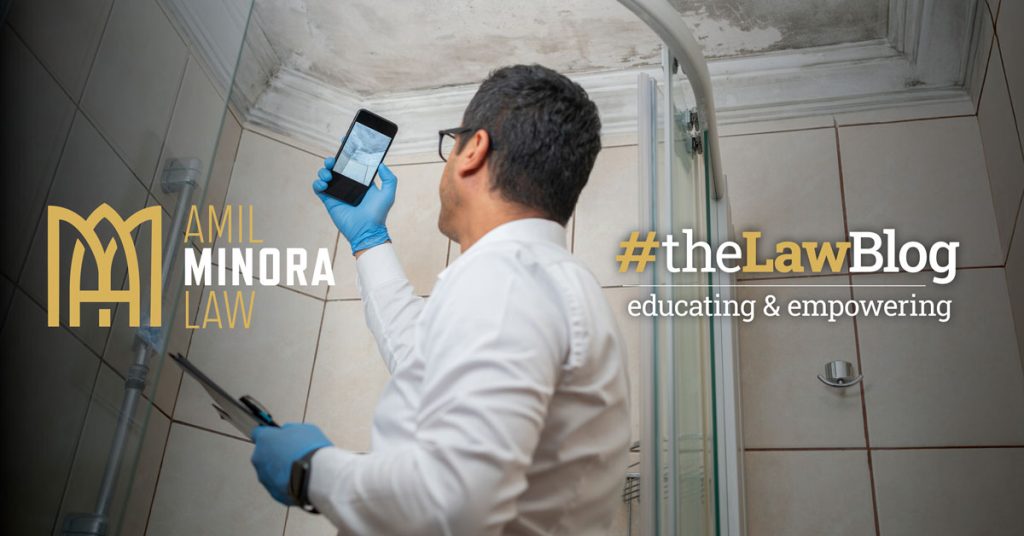Pennsylvania law for property liability
Landlord liability for tenant injuries represents a critical area of Pennsylvania law that directly affects both property owners and tenants across the Commonwealth. When you rent an apartment or home, you expect it to be a safe place to live. But when unsafe conditions cause an accident, questions of responsibility arise. Premises liability and landlord liability for tenant injuries determine whether a landlord may be legally responsible for the harm suffered by tenants and guests. Understanding these laws can help injured tenants protect their rights and recover compensation.
Landlord liability in Pennsylvania
Pennsylvania courts apply well-established premises liability principles to landlord-tenant relationships. Generally, landlords owe tenants a duty to maintain rental properties in reasonably safe condition and address known hazards that could cause harm. This responsibility extends beyond mere property ownership to encompass active maintenance and timely response to dangerous conditions.
The Pennsylvania Supreme Court has consistently held that landlords cannot simply ignore safety issues once they rent their properties. Instead, they maintain ongoing obligations to ensure tenant safety, particularly in areas under their control.
Common areas and landlord control
Landlords face the strongest liability exposure for injuries occurring in common areas they directly control and maintain. Stairwells, hallways, parking lots, laundry facilities, and building entrances fall under landlord responsibility. When tenants slip on icy steps, trip over broken flooring, or suffer injuries from inadequate lighting in these areas, landlords often bear legal responsibility.
Consider this example: A tenant breaks her ankle after falling down poorly maintained apartment building stairs with a broken handrail. The landlord knew about the handrail issue for months but failed to repair it. Pennsylvania courts would likely hold the landlord liable because they controlled the stairwell and had notice of the dangerous condition.
Examples of landlord liability in Pennsylvania
Consider these common scenarios where tenants may pursue legal action against a landlord:
- Slip and Fall Accidents – A tenant slips on an icy walkway accident in Pennsylvania outside an apartment building that the landlord failed to salt or shovel. In Pennsylvania, landlords are responsible for keeping common areas free of dangerous snow and ice.
- Defective Staircases – A broken handrail in a shared stairwell causes a tenant to fall. If the landlord knew about the defect but didn’t repair it, liability may apply.
- Poor Security – Inadequate locks or broken entry systems can make tenants vulnerable to criminal attacks. Landlords who fail to provide reasonable apartment security measures can be held accountable for resulting injuries.
- Unsafe Living Conditions – Leaking roofs, mold, or faulty electrical wiring can cause illness or accidents. If landlords do not fix these issues after being notified, they may face legal consequences.
Each of these examples highlights how Pennsylvania courts look at the landlord’s duty of care and whether that duty was breached.
The notice requirement
Pennsylvania law requires that landlords have actual or constructive notice of dangerous conditions before liability attaches. Actual notice occurs when tenants directly inform landlords about hazards through complaints or maintenance requests. Constructive notice applies when conditions exist long enough that reasonable landlords should have discovered them through regular inspections.
For instance, if water damage creates mold growth over several months, courts may find constructive notice even without tenant complaints. Landlords who conduct regular property inspections demonstrate responsible management and may avoid liability for conditions they genuinely could not have known about.
Steps to take after a tenant injury
If you’re a tenant injured on rental property in Pennsylvania, taking the right steps is crucial:
Speak with a Pennsylvania landlord injury lawyer – A lawyer experienced in landlord liability cases can guide you through Pennsylvania’s legal system.
Seek Medical Care – Your health and safety come first.
Document the Scene – Take photos or videos of the hazard that caused your injury.
Notify the Landlord in Writing – Keep a record of your communication.
Gather Witnesses – Statements from neighbors or visitors can strengthen your case.
Lease provisions and repair responsibilities
Lease agreements significantly impact liability determination. When landlords retain responsibility for specific repairs or maintenance tasks, they assume corresponding liability for related injuries. Pennsylvania courts examine lease language carefully to determine whether landlords contractually obligated themselves to address particular safety concerns.
However, landlords cannot completely eliminate liability through broad lease provisions that attempt to shift all responsibility to tenants. Pennsylvania public policy protects tenants from unreasonable liability waivers, particularly for conditions beyond tenant control.
Statutory obligations and building codes
Pennsylvania’s Landlord-Tenant Act and local building codes establish minimum safety standards that landlords must maintain. Violations of these requirements can strengthen tenant injury claims significantly. When landlords fail to address code violations that directly contribute to tenant injuries, they face enhanced liability exposure.
Tenant responsibilities and comparative negligence
Pennsylvania’s comparative negligence system allows courts to reduce landlord liability when tenants contribute to their own injuries through negligent behavior. Tenants who ignore obvious hazards or misuse property may bear partial responsibility for resulting injuries.
Protecting your rights
Tenants who suffer injuries on rental property should document conditions thoroughly, seek immediate medical attention, and preserve evidence of landlord notice. Property photographs, maintenance request records, and witness statements prove invaluable in establishing landlord liability.
Landlord liability for tenant injuries cases require experienced legal representation to navigate Pennsylvania’s complex legal landscape successfully. The attorneys at Amil Minora Law understand the nuances of landlord-tenant liability and work tirelessly to protect injured tenants’ rights while pursuing the compensation they deserve for their injuries and losses.

